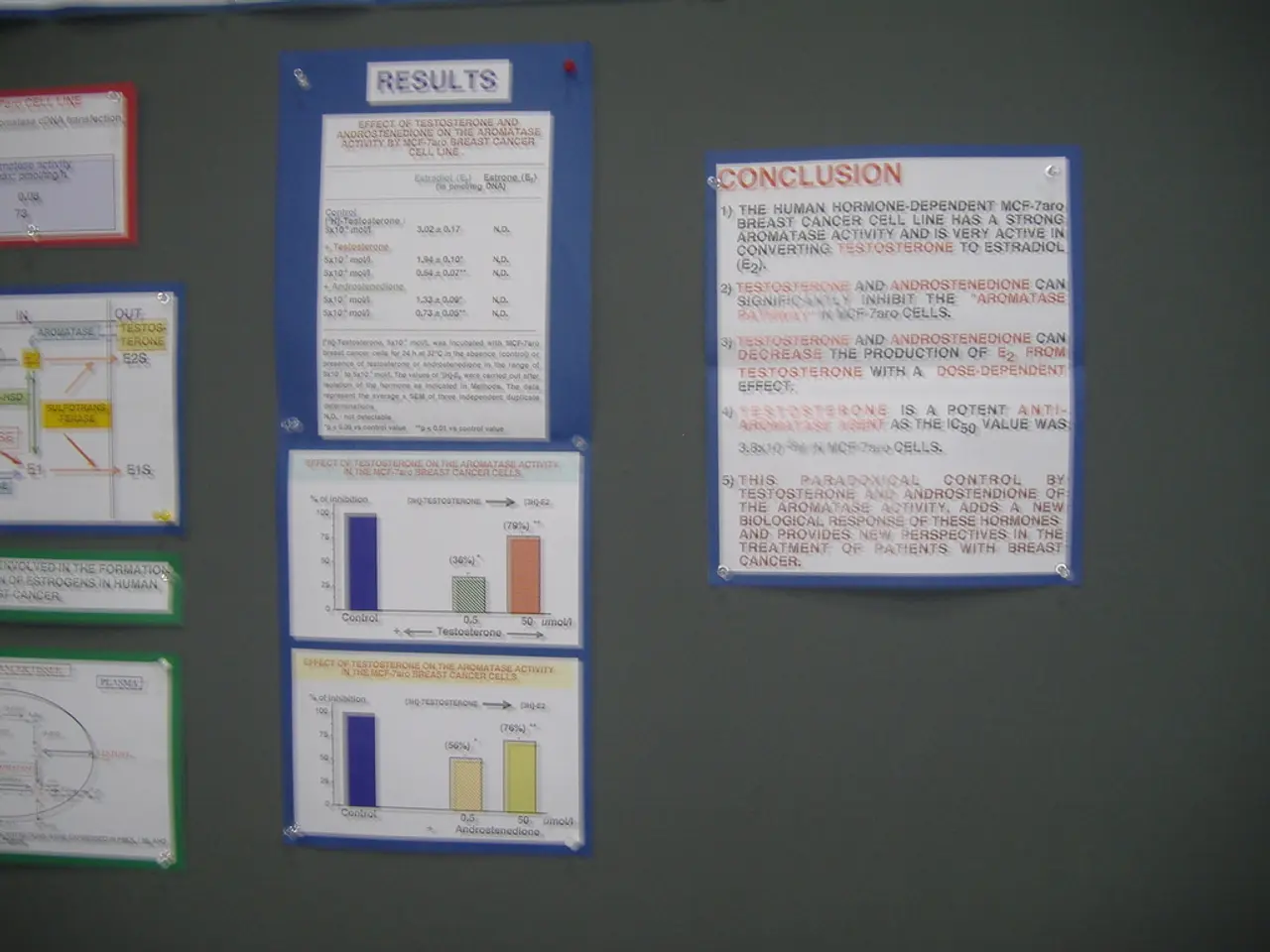Impacts of Atrial Fibrillation: Symptoms and Potential Complications
Long-term Complications of Untreated Atrial Fibrillation (AFib): A Call for Early Management
Atrial Fibrillation (AFib), a common heart rhythm disorder, can lead to several serious complications if left untreated. Here are some of the long-term risks associated with this condition.
Stroke
AFib causes irregular heart rhythm, leading to blood pooling in the atria. This increases the risk of blood clot formation, which can travel to the brain and cause an ischemic stroke. People with AFib are nearly five times more likely to have a stroke, and AFib-related strokes tend to be more fatal and disabling.
Heart Failure
Persistent AFib causes the heart to work inefficiently and harder, which over time weakens the heart muscle and can lead to congestive heart failure. Symptoms may include shortness of breath, fatigue, fluid buildup, swelling in legs, and weight gain.
Cognitive Decline and Memory Problems
Long-term AFib and associated irregular blood flow can increase the risk of brain issues such as memory loss, brain fog, and possibly dementia.
Sudden Cardiac Arrest
Though rarer in AFib compared to other arrhythmias, untreated heart rhythm disorders, including AFib, may increase the risk of sudden cardiac arrest, which is a potentially fatal emergency.
Serious Decline in Quality of Life
Persistent symptoms like palpitations, fatigue, and shortness of breath can impair daily functioning and overall well-being.
In some cases known as "lone atrial fibrillation" where there is no underlying heart disease, serious complications are less common, but the risk of stroke and heart failure remains significant in most untreated AFib cases.
Preventing AFib Complications
Early diagnosis and management of AFib are crucial to prevent these complications. It is important to learn the triggers of an AFib attack to prevent complications. Other factors that can cause AFib include advanced age, physical and mental stress, high blood pressure, hyperthyroidism, chronic kidney disease, smoking, obesity, and diabetes.
Treatment Options
Doctors may prescribe medications to restore heart rhythm, control heart rate, and prevent blood clotting. These include Verapamil, Flecainide, Beta-blockers, Warfarin, and other anticoagulation medications such as apixaban (Eliquis) and rivaroxaban (Xarelto).
If you experience chest pain that comes and goes, a sudden change in heart rate or rhythm, a heart rate lower than 60 beats per minute or above 100 beats per minute for a prolonged period, or the onset of symptoms relating to AFib, including heart fluttering or pounding, shortness of breath, or dizziness, it is best to seek medical advice immediately.
If you experience sudden chest pain that lasts for more than 15 minutes and is accompanied by tightness in the chest, shortness of breath, pain in the jaw, arms, neck, or back, sweating, or vomiting, urgent care is needed.
In some cases, treatments for AFib may include catheter ablation, cardioversion, and fitting a pacemaker.
References: [1] American Heart Association. (2020). Atrial Fibrillation. Retrieved from https://www.heart.org/en/health-topics/atrial-fibrillation
[2] Mayo Clinic. (2020). Atrial Fibrillation. Retrieved from https://www.mayoclinic.org/diseases-conditions/atrial-fibrillation/symptoms-causes/syc-20351786
[3] National Heart, Lung, and Blood Institute. (2020). Atrial Fibrillation. Retrieved from https://www.nhlbi.nih.gov/health-topics/atrial-fibrillation
[4] Cleveland Clinic. (2020). Atrial Fibrillation. Retrieved from https://my.clevelandclinic.org/health/diseases/17105-atrial-fibrillation
[5] British Heart Foundation. (2020). Atrial Fibrillation. Retrieved from https://www.bhf.org.uk/informationsupport/conditions-and-diseases/heart-rhythm-problems/atrial-fibrillation/causes-and-risk-factors
Read also:
- Soaring Dengue Fatality Counts in Bangladesh
- Frigid Conditions Pose Potential Health Risks for the Heart and Lungs
- Experiencing issues with Leqvio? Learn about its potential side effects and ways to manage them.
- Interpreting Nightly Visions: Unveiling Hidden Anxieties and Concerns Within Your Subconscious Mind




